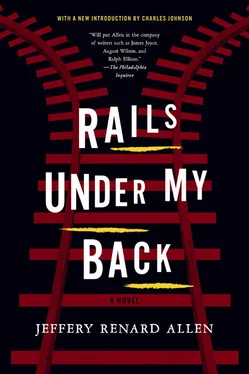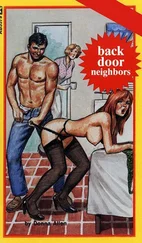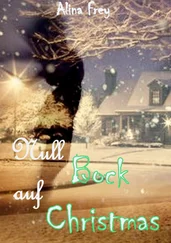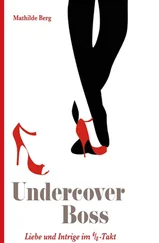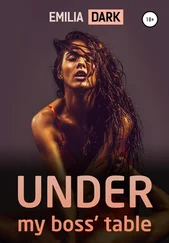Shine went below deck, eating his peas
Til the water come up to his knees.
He felt air currents from the movement of cars, shoes, skirts. Rumble and rustle tingling the blood in his rubber-soled feet. Suits and ties and skirts and heels were beginning to change color in the spring heat. A constant weight in their faces, the suits and ties lugged briefcases, newspapers tucked under the left arm. The skirts and heels sported ankle socks and gym shoes— tennis shoes, his grandmother called them — as if they gon shoot some b-ball in the office, arc crumpled bills (fives, tens, twenties) into steel wastebaskets. Cut a V for the express train into Central, slowed somewhat by purses bulging with thick paperback novels. A flyer curved around a lamppost: MOTHERFUCK THE WAR! A hang-tailed hound jogged out of an alley — Jesus hoped he would stray within range — and past a knot of beggars hunched over in a corner doorway, rained-on ghosts.
Kind sir, could you—
Hell nawl. Jesus did not pause in his walking. Get a job.
Go to hell and take yo mamma wit you, just for company.
Jesus kept walking.
Cheap nigga.
Jesus kept walking.
Goofy-looking motherfucka.
Bitch, Jesus said, stopping, turning at the beggar, facing the spit-thickened beard. Wash the fart out yo draws. He continued on.
He hadn’t gone far when stench stopped him. Eighth and Lawrence, the subway entrance — A blind man could find it. Follow your nose —a funky mouth, with worn, broken, and dirty stairs like neglected teeth, descending to a dark throat. The subway breathed him in. He tugged at his ear, his fingers rough against the diamond there. He knew all about the purse and chain snatchers who rode the trains. Rough niggas versed in all tricks of the trade, killin, stealin, and gankin to get paid. Once, he saw a thief hack off a woman’s earlobes with a straight razor to loot her diamond earrings. The thief wiped the blood from his razor onto her blouse, slowly and smoothly, as if buttering a bread slice, and Jesus wondered if the woman screamed from the sight of blood, from the pain, or from the sensation of reaching for her lobes to discover they were no longer there.
He had heart, a lot of it — fires could not burn it, water could not drown it, winds could not bend it — and would sport his jewelry. He thought: Cutthroats. Praise them. Got to have heart to cut mine out. But ain’t nobody gon fuck wit me. Jesus Jones. They are clay. I am stone.
Two rails of level steel, the only clean things in the subway, ran from the darkness at one end of the tunnel into the darkness at the other end, ran over the piles of filth that filtered down from the street two levels above. Two rails that glittered like silver needles in the darkness, awaiting the shiny thimble of train.
A dark pulse at a distance. Jesus could feel it under his feet. He saw pale light, then deep shadow, then glistening train, train that came boring out of the tunnel, bellowing in the distance. Carrying distance to him. The doors opened quick and noisy like a switchblade. Jesus slipped inside the silver sleeve. Muscled a window seat, the window black, nothing to see, metal brightness around him. Suits and ties rested their briefcases across their laps. Skirts and heels parked with their legs crossed. Then, fresh motion. The train moved over greased tracks, a steady rumbling beneath the floor, the car shaking from side to side. The black subway tunnel was a hollow subterranean string stretching under Tar Lake and joining North Park and Central. And the car, an aquarium with passengers for fish. Better yet, a reverse aquarium, with the fish kept in and the water out.
Jesus curled up in his seat, jacket draped across his shoulders, neck, and chest, baby-snug. The car was cold, cutting to the bone. Lucky he had worn his thick socks. Still, the cold bit through; he shivered, a pinned butterfly. The train swept along the curve of a blind river (one of the city’s twelve). Long after the curve had passed from vision, it boomeranged back, remained imprinted on his inner eyes, two spinning black half-moons. He liked double-decker trains and wished this were one. Kind sticks to kind. But you almost never saw them in the city anymore. Only in the suburbs. Every summer, the family — you, your cousin Hatch, and your aunt Sheila — used to board a silver double-decker for West Memphis, where Lula Mae live, riding high above the rails, your thermos heavy with cold soda pop, and fried chicken stuffed in a greasy shoebox, the aroma strong enough to haunt future passengers for years to come, odors of food and rhythm of rails. Eat that chicken, then lie back fat in your seat, gazing out the window. High hills rolled all the way to the horizon. Scraggly trees like squirrel tails. Cows still as stones. Each rail tie demands attention. The conductor would shout out a litany of stops. And you and Hatch would get happy.
Stop all that jumpin like monkeys in the jungle, Sheila said. You know better. Show some home training. Do that again and I’ll beat the living daylights outa you right here on this train.
Lula Mae would be waiting at the station, accompanied by a redcap. A woman thick in the waist, taking up space. Tall, commanding vision from a toadstool of height. A creature of no color, so pale many believed her an albino. You were afraid of her white skin, the smell, the touch. Feared her black snakelike veins. And the figured scars on her calves. Ole cotton patch. Crazy Junebug giggled giggled at her calves. Ole cotton patch. Tar baby. Tar baby.
She saw you and kindled instantly. Over here! Waving. Go get their bags.
Yes’m. The redcap rushed forward. Loaded the suitcases onto his cart.
Give yo granny a hug. The thorny hairs on her bosom snatched you before you could comply or decline.
Lula Mae?
Yes.
Why you don’t shave them hairs?
Meanness rooted up in the black veins of her neck. Cause they only gon grow back longer.
Come switching time, she would make you go out to the yard and strip your own branch of leaves. Whip the hard branch soft against your hard-headed behind. Whip your butt and legs with the ease of a conducter waving his baton. After a thorough switching, sweat greased the creases of her face. But if she had no energy to switch, if exhaustion had sunk into her bones, she settled for a quick open hand slap across your chops. Water would dam at the back of your tongue, a multitude of days threatening to spill out. You ran out the house and escaped to the red gravel road. Found there, frogs hard and flat as soda pop cans in the desiccating sun. So you would kick them — metal sound, scraping across the sunbaked road — or, if your fingers had heart, pick them up and fling them, Frisbee fashion, bouncing and skipping like a pebble on water.
BUT JOHN GAVE IT TO ME. For my birthday.
Yeah. His daddy gave it to him. My Uncle John gave it.
I turn seven.
I don’t care if Jehovah himself give it to you, Lula Mae said. Take that scorpion outa here.
He ain’t no scorpion, Hatch said. He a chameleon, a lizard.
Houston got scorpions look jus like lizards.
This ain’t Houston.
Lula Mae drew back her hand. I don’t stand for no back talk. Sheila might, but I don’t. Now take that scorpion outa here.
You and Hatch carried Dogma the chameleon out to the red gravel road.
He get crushed, you said.
No he won’t. He a chameleon.
So?
He can change color. Red. The color of the road.
You laughed. What good that gon do him?
He be invisible. Cars can’t see him.
STOP THAT CHUNKIN! Lula Mae screamed.
Damn! Can’t have no fun!
Yeah. No fun.
Lula Mae was tight on you, shoes. Watchin you hard and hateful from her brick porch. You could see her eyes, looming, though the road was several hundred feet away. Preacher eyes trying to burn the devil out of you. The sun looks through your western window. Carries the record of human deeds to the Lord each night. Legs might escape her body — run to the yellow field across the road, high grass tall and safe, or so you thought — but nothing could escape her eyes. Even when you climbed high in a tree — a yolk sun cooking the sky, burning and blinding you, with cool air singing in the branches — her high-flying eyes would find you. Hurtful eyes that followed you everywhere, rocks in your shoe.
Читать дальше
